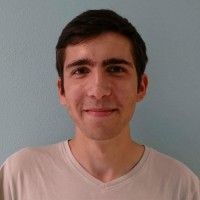
Baptiste Alberti
Institute of Functional Genomics of Lyon
France
EMBO Practical Course
Please see EMBL’s COVID-19 safety policy for testing and other requirements to attend this on-site course.
The fruit fly Drosophila has played a leading role in the discovery and dissection of basic biological processes, uncovering general principles of development, evolution and disease. Almost a century of research has generated a powerful genetic toolbox that provides a unique arsenal of methods that can tackle almost any biological question. This, combined with exciting new technologies developed in recent years have changed the way Drosophila research is conducted, enabling biologists to address questions that were impossible to study before.
The course has three main objectives:
– First, to educate and inspire the next generation of scientists, by providing an up-to-date overview and hands-on training of contemporary and classic topics, spanning state-of-the-art techniques in genetics, imaging, and genomics. Participants will obtain an essential knowledge base combined with practical training, forming a launch-pad for their research.
– Second, to stimulate the exchange of ideas between established and early-career scientists, enabling participants to better direct their research trajectory.
– Third, to provide networking opportunities, hence fostering collaborations and career development.
The new course combines 50% interactive theoretical discussions that have been successfully used to train generations of Drosophila researchers for nearly 30 years combined with 50% new practical hands-on, cutting-edge experiments taught by experts in the field.
The course is aimed at PhD students and early stage post-doctoral researchers who want to start using or enhance their knowledge of Drosophila as a model organism.
Training session will familiarize attendees with classical and modern approaches to fruit fly genetics and genomics, including EMS screens and CRISPR gene editing, modern imaging methods, behavioural analysis, immunity assays, and handling wild-caught species.

Institute of Functional Genomics of Lyon
France
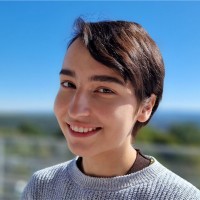
The Friedrich Miescher Laboratory
Germany
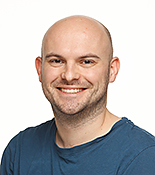
EMBL Heidelberg
Germany
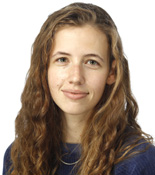
EMBL Heidelberg
Germany
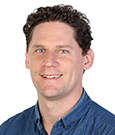
EMBL Heidelberg
Germany
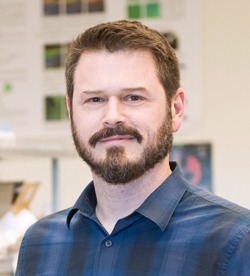
Vollum Institute
USA
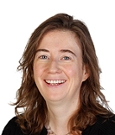
EMBL Heidelberg
Germany
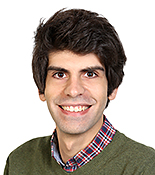
EMBL Heidelberg
Germany
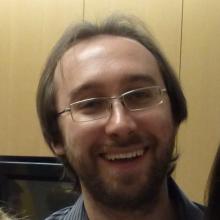
University of California, Berkeley
USA
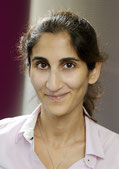
Institute of Functional Genomics of Lyon
France
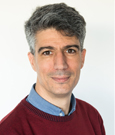
Ludwig-Maximilians-Universität München
Germany
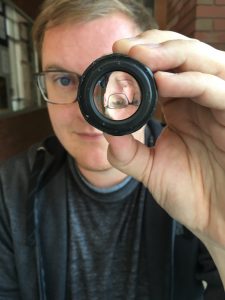
Brown University
USA
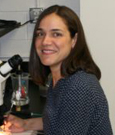
University of Rochester
USA
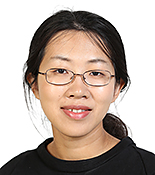
EMBL Heidelberg
Germany
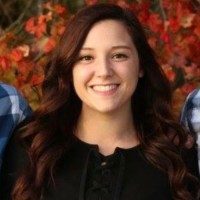
Brown University
USA
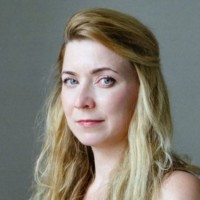
Instituto Gulbenkian de Ciência
Portugal
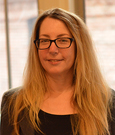
Brown University
USA
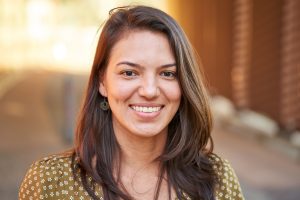
The Friedrich Miescher Laboratory
Germany
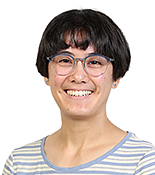
EMBL Heidelberg
Germany
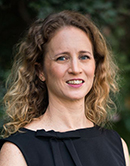
Technion-Israel Institute of Technology
Israel
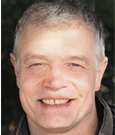
The University of Manchester
UK
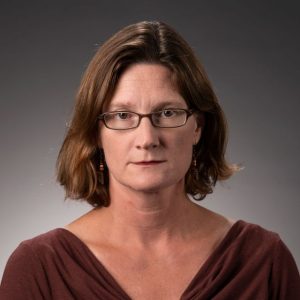
University of California, Santa Barbara
USA
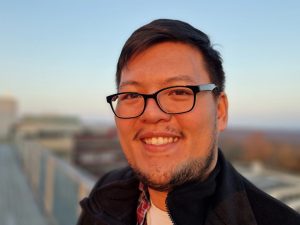
The Friedrich Miescher Laboratory
Germany
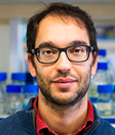
Católica Biomedical Research Centre and Instituto Gulbenkian de Ciência
Portugal
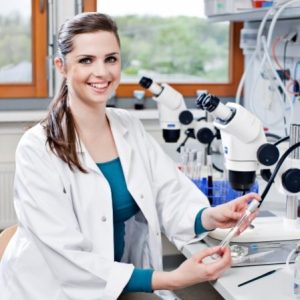
Ludwig-Maximilians-Universität München
Germany
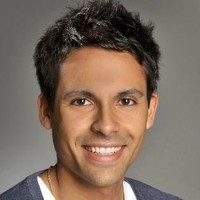
EMBL Heidelberg
Germany
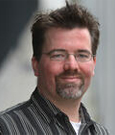
Max Delbrück Center
Germany

EMBL Heidelberg
Germany

Brown University
USA

Technion-Israel Institute of Technology
Israel
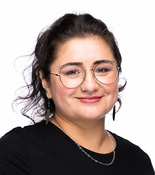
Course and Conference Officer
EMBL Heidelberg
Germany

Training Laboratory Officer
EMBL Heidelberg
Germany
Got something to say? Tweet it! #EMBODrosophila
| Time (Europe/Berlin) | Session | Location |
|---|---|---|
| 14:30 – 15:00 | Bus from hotel to EMBL ATC entrance | B&B Hotel |
| 15:00 – 15:30 | Registration and light refreshments | Courtyard Room A & B |
| 15:30 – 15:40 | Welcome, introduction and housenotes Justin Crocker – EMBL Heidelberg, Germany Kate O’Connor-Giles – Brown University, USA Ella Preger-Ben-Noon – Technion-Israel Institute of Technology, Israel Andreas Prokop – The University of Manchester, UK | Courtyard Room A & B |
| 15:40 – 15:45 | Overview of the day The power of Drosophila as a model organism | Courtyard Room A & B |
| 15:45 – 16:45 | Ice breaking activity: Flash talks | Courtyard Room A & B |
| 16:45 – 17:05 | Coffee break | Courtyard Room A & B |
| 17:05 – 17:50 | Lecture: Drosophila functional evolutionary genomics Amanda Larracuente – University of Rochester, USA | Courtyard Room A & B |
| 17:50 – 18:05 | Q&A | Courtyard Room A & B |
| 18:05 – 19:35 | Practical session: Drosophila anatomy, development, genetics and outreach/advocacy Matthew Benton – EMBL Heidelberg, Germany Lautaro Gandara – EMBL Heidelberg, Germany Andreas Prokop – The University of Manchester, UK | Courtyard Room A & B |
| 19:35 – 21:35 | Dinner and networking | EMBL Canteen |
| 21:35 | Bus to hotel | EMBL Bus Stop |
| Time (Europe/Berlin) | Session | Location |
|---|---|---|
| 08:30 – 09:00 | Bus from hotel to EMBL ATC entrance | B&B Hotel |
| 09:00 -09:10 | Overview of the day Discerning function through perturbation | Courtyard Room A & B |
| 09:10 – 09:30 | Lab safety instructions Irena Provaznikova – EMBL Heidelberg, Germany | Courtyard Room A & B |
| 09:30 – 10:15 | Lecture: Screen design in flies Marc Freeman – Vollum Institute, USA | Courtyard Room A & B |
| 10:15 – 10:30 | Q&A | Courtyard Room A & B |
| 10:30 – 11:00 | Coffee break and meet the speakers | Courtyard Room A & B |
| 11:00 – 11:45 | Lecture: Fly behavioural screens Julie Simpson – University of California, Santa Barbara, USA | Courtyard Room A & B |
| 11:45 – 12:00 | Q&A | Courtyard Room A & B |
| 12:00 – 13:00 | Lunch break | EMBL Canteen |
| 13:00 – 14:45 | Practical session: CRISPR design in flies Trainers: Noa Borts – EMBL Heidelberg, Germany Kate O’Connor-Giles – Brown University, USA Scott Graz – Brown University, USA Audrey Medeiros – Brown University, USA | Computer Training Lab |
| 14:45 – 15:15 | Coffee break and meet the speakers for virtual participants | Flex Lab A & B |
| 15:15 – 17:00 | Practical session: CRISPR design in flies (continued) Trainers: Noa Borts – EMBL Heidelberg, Germany Kate O’Connor-Giles – Brown University, USA Scott Graz – Brown University, USA Audrey Medeiros – Brown University, USA | Computer Training Lab |
| 17:00 – 19:30 | Poster session I (10 students) | Helix A |
| 19:30 – 20:30 | Vegetarian dinner | EMBL Canteen |
| 20:30 | Bus to hotel | EMBL Bus Stop |
| Time (Europe/Berlin) | Session | Location |
|---|---|---|
| 08:30 – 09:00 | Bus from hotel to EMBL ATC entrance | B&B Hotel |
| 09:00 – 09:10 | Overview of the day Revealing new insights through live imaging | Courtyard Room A & B |
| 09:10 – 09:55 | Lecture: Imaging across scales Justin Crocker – EMBL Heidelberg, Germany | Courtyard Room A & B |
| 09:55 – 10:10 | Q&A | Courtyard Room A & B |
| 10:10 – 10:40 | Coffee break and meet the speakers | Courtyard Room A & B |
| 10:40 – 11:25 | Lecture: Quantitative imaging of transcription Hernan Garcia – University of Berkeley, USA | Courtyard Room A & B |
| 11:25 – 11:40 | Q&A | Courtyard Room A & B |
| 11:40 – 12:40 | Lecture: Intro to live imaging Justin Crocker – EMBL Heidelberg, Germany Hernan Garcia – University of Berkeley, USA | Courtyard Room A & B |
| 12:40 – 13:40 | Lunch Break | EMBL Canteen |
| 13:40 – 14:10 | Embryo mounting for imaging | Training Lab A & B |
| 14:10 – 15:40 | Practical session: Imaging in the fly Trainers: Matthew Benton – EMBL Heidelberg, Germany Noa Borst – EMBL Heidelberg, Germany Justin Crocker – EMBL Heidelberg, Germany Hernan Garcia – University of Berkeley, USA Mindy Perkins – EMBL Heidelberg, Germany | Training Lab A & B |
| 15:40 – 16:10 | Coffee break and meet the speakers for virtual participants | Training Lab A & B |
| 16:10 – 17:40 | Practical session: Imaging in the fly (continued) Trainers: Matthew Benton – EMBL Heidelberg, Germany Noa Borst – EMBL Heidelberg, Germany Justin Crocker – EMBL Heidelberg, Germany Hernan Garcia – University of Berkeley, USA Mindy Perkins – EMBL Heidelberg, Germany | Training Lab A & B |
| 17:40 – 20:10 | Poster session II (10 students) | Helix A |
| 20:10 – 21:10 | Pizza dinner | ATC Rooftop Lounge |
| 21:10 – 22:10 | Career chat | ATC Rooftop Lounge |
| 22:10 | Bus to Hotel | EMBL Bus Stop |
| Time (Europe/Berlin) | Session | Location |
|---|---|---|
| 08:15 – 09:00 | Bus from hotel to EMBL ATC entrance | B&B Hotel |
| 09:00 – 09:10 | Overview of the day New views from single cell genomics | Courtyard Room A & B |
| 09:10 – 09:55 | Lecture: Systems biology of neural tissue differentiation Robert Zinzen – Max Delbrück Center for Molecular Medicine, Germany | Courtyard Room A & B |
| 09:55 – 10:10 | Q&A | Courtyard Room A & B |
| 10:10 – 10:40 | Coffee break and meet the speakers | Courtyard Room A & B |
| 10:40 – 11:25 | Lecture: Three-dimensional organization of the genome Yad Ghavi-Helm – Institute Genomics Functional De Lyon, France | Courtyard Room A & B |
| 11:25 – 11:40 | Q&A | Courtyard Room A & B |
| 11:40-12:25 | Lecture: Genome regulation during developmental transitions Eileen Furlong – EMBL Heidelberg, Germany | Courtyard Room A & B |
| 12:25 – 12:40 | Q&A | Courtyard Room A & B |
| 12:40 – 13:30 | Lunch Break | EMBL Canteen |
| 13:30 – 13:40 | Group photo | ATC Entrance |
| 13:40 – 15:10 | Practical session: Genomics at single-cell resolution Trainers: Baptiste Alberti – Institute Genomics Functional De Lyon, France Yad Ghavi-Helm – Institute Genomics Functional De Lyon, France Robert Zinzen – Max Delbrück Center for Molecular Medicine, Germany | Training Lab A & B |
| 15:10 – 15:40 | Coffee break and meet the speakers for virtual participants | Computer Training Lab |
| 15:40 – 17:10 | Practical session: Genomics at single-cell resolution (continued) Trainers: Baptiste Alberti – Institute Genomics Functional De Lyon, France Yad Ghavi-Helm – Institute Genomics Functional De Lyon, France Harald Vöhringer – EMBL Heidelberg, Germany Robert Zinzen – Max Delbrück Center for Molecular Medicine, Germany | Computer Training Lab |
| 17:10 – 19:10 | Poster session III (6 virtual students) | Courtyard Room A & B |
| 19:10 – 20:10 | Dinner | EMBL Canteen |
| 20:10 | Bus to hotel | EMBL Bus Stop |
| Time (Europe/Berlin) | Session | Location |
|---|---|---|
| 08:15 – 09:00 | Bus from hotel to EMBL ATC entrance | B&B Hotel |
| 09:00 – 09:10 | Overview of the day Drosophila diversity and evolution | Courtyard Room A & B |
| 09:10 – 09:40 | Lecture: The genetic basis of complex traits Luisa Pallares – The Friedrich Miescher Laboratory, Germany | Courtyard Room A & B |
| 09:40 – 09:55 | Q&A | Courtyard Room A & B |
| 09:55 – 10:25 | Coffee break and meet the speakers | Courtyard Room A & B |
| 10:25 – 10:55 | Lecture: Genetics of phenotype evolution Nicolas Gompel – Ludwig-Maximilians-Universität München, Germany | Courtyard Room A & B |
| 10:55 – 11:10 | Q&A | Courtyard Room A & B |
| 11:10 – 11:55 | Lecture: The evolution of a complex morphology at a single-cell resolution Ella Preger-Ben-Noon – Technion-Israel Institute of Technology, Israel | Courtyard Room A & B |
| 11:55 – 12:10 | Q&A | Courtyard Room A & B |
| 12:10 – 13:10 | Lunch Break | EMBL Canteen |
| 13:10 – 15:10 | Practical session: Drosophila behavioral analysis Trainers: Saudat Alishayeva – The Friedrich Miescher Laboratory, Germany Nicolas Gompel – Ludwig-Maximilians-Universität München, Germany Luisa Pallares – The Friedrich Miescher Laboratory, Germany James Tan Sheng Yi – The Friedrich Miescher Laboratory, Germany Natascha Turetzek – Ludwig-Maximilians-Universität München, Germany | Training Lab A & B |
| 15:10 – 15:40 | Coffee break and meet the speakers for virtual participants | Courtyard Room A & B |
| 15:40 – 17:40 | Practical session: Drosophila behavioral analysis (continued) Trainers: Saudat Alishayeva – The Friedrich Miescher Laboratory, Germany Nicolas Gompel – Ludwig-Maximilians-Universität München, Germany Luisa Pallares – The Friedrich Miescher Laboratory, Germany James Tan Sheng Yi – The Friedrich Miescher Laboratory, Germany Natascha Turetzek – Ludwig-Maximilians-Universität München, Germany | Training Lab A & B |
| 17:40 – 18:25 | Bus to city centre (with 10 min stop at hotel) | EMBL Bus Stop |
| 18:25 – 19:30 | Free afternoon | City Centre |
| 19:30 – 21:30 | Downtown dinner | Urban Kitchen |
| Time (Europe/Berlin) | Session | Location |
|---|---|---|
| 08:15 – 09:00 | Bus from hotel to EMBL ATC entrance | B&B Hotel |
| 09:00 – 09:10 | Overview of the day Organismal interactions | Courtyard Room A & B |
| 09:10 – 09:55 | Lecture: The interaction of Drosophila melanogaster with microorganisms Luís Teixeira – Católica Biomedical Research Centre and Instituto Gulbenkian de Ciência, Portugal | Courtyard Room A & B |
| 09:55 – 10:10 | Q&A | Courtyard Room A & B |
| 10:10 – 10:40 | Coffee break and meet the speakers | Courtyard Room A & B |
| 10:40 – 12:10 | Practical session: Analysis of fly infection Trainer: Matthew Benton – EMBL Heidelberg, Germany Lautaro Gandara – EMBL Heidelberg, Germany Migla Miskinyte – Instituto Gulbenkian de Ciência, Portugal Luís Teixeira – Católica Biomedical Research Centre and Instituto Gulbenkian de Ciência, Portugal | Training Lab A & B |
| 12:10 – 13:10 | Lunch Break | EMBL Canteen |
| 13:10 – 14:10 | Wrap up of practicals and final data analysis | Courtyard Room A & B |
| 14:10 – 15:10 | Feedback round and departure | Courtyard Room A & B |
Got something to say? Tweet it! #EMBODrosophila
| Time (Europe/Berlin) | Session |
|---|---|
| 15:30 – 15:40 | Welcome, introduction and housenotes Justin Crocker – EMBL Heidelberg, Germany Kate O’Connor-Giles – Brown University, USA Ella Preger-Ben Noon – Technion-Israel Institute of Technology, Israel Andreas Prokop – The University of Manchester, UK |
| 15:40 – 15:45 | Overview of the day The power of Drosophila as a model organism |
| 15:45 – 16:45 | Ice breaking activity: Flash talks |
| 16:45 – 17:05 | Break |
| 17:05 – 17:50 | Lecture: Drosophila functional evolutionary genomics Amanda Larracuente – University of Rochester, USA |
| 17:50 – 18:05 | Q&A |
| 18:05 – 19:35 | Practical session: Drosophila anatomy, development, genetics and outreach/advocacy Matthew Benton – EMBL Heidelberg, Germany Lautaro Gandara – EMBL Heidelberg, Germany Andreas Prokop – The University of Manchester, UK |
| Time (Europe/Berlin) | Session |
|---|---|
| 09:00 – 09:10 | Overview of the day Discerning function through perturbation |
| 09:10 – 09:30 | Lab safety instructions Irena Provaznikova – EMBL Heidelberg, Germany |
| 09:30 – 10:15 | Lecture: Screen design in flies Marc Freeman – Vollum Institute, USA |
| 10:15 – 10:30 | Q&A |
| 10:30 – 11:00 | Break |
| 11:00 – 11:45 | Lecture: Fly behavioural screens Julie Simpson – University of California, Santa Barbara, USA |
| 11:45 – 12:00 | Q&A |
| 12:00 – 13:00 | Break |
| 13:00 – 14:45 | Practical session: CRISPR design in flies Trainers: Noa Borts – EMBL Heidelberg, Germany Kate O’Connor-Giles – Brown University, USA Scott Graz – Brown University, USA Audrey Medeiros – Brown University, USA |
| 14:45 – 15:15 | Meet the speakers for virtual participants |
| 15:15 – 17:00 | Practical session: CRISPR design in flies (continued) Trainers: Noa Borts – EMBL Heidelberg, Germany Kate O’Connor-Giles – Brown University, USA Scott Graz – Brown University, USA Audrey Medeiros – Brown University, USA |
| Time (Europe/Berlin) | Session |
|---|---|
| 09:00 – 09:10 | Overview of the day Revealing new insights through live imaging |
| 09:10 – 09:55 | Lecture: Imaging across scales Justin Crocker – EMBL Heidelberg, Germany |
| 09:55 – 10:10 | Q&A |
| 10:10 – 10:40 | Break |
| 10:40 – 11:25 | Lecture: Quantitative imaging of transcription Hernan Garcia – University of Berkeley, USA |
| 11:25 – 11:40 | Q&A |
| 11:40 – 12:40 | Lecture: Intro to live imaging Justin Crocker – EMBL Heidelberg, Germany Hernan Garcia – University of Berkeley, USA |
| 12:40 – 13:40 | Break |
| 13:40 – 14:10 | Embryo mounting for imaging |
| 14:10 – 15:40 | Practical session: Imaging in the fly Trainers: Matthew Benton – EMBL Heidelberg, Germany Noa Borst – EMBL Heidelberg, Germany Justin Crocker – EMBL Heidelberg, Germany Hernan Garcia – University of Berkeley, USA Mindy Perkins – EMBL Heidelberg, Germany |
| 15:40 – 16:10 | Meet the speakers for virtual participants |
| 16:10 – 17:40 | Practical session: Imaging in the fly (continued) Trainers: Matthew Benton – EMBL Heidelberg, Germany Noa Borst – EMBL Heidelberg, Germany Justin Crocker – EMBL Heidelberg, Germany Hernan Garcia – University of Berkeley, USA Mindy Perkins – EMBL Heidelberg, Germany |
| Time (Europe/Berlin) | Session |
|---|---|
| 09:00 – 09:10 | Overview of the day New views from single cell genomics |
| 09:10 – 09:55 | Lecture: Systems Biology of Neural Tissue Differentiation Robert Zinzen – Max Delbrück Center for Molecular Medicine, Germany |
| 09:55 – 10:10 | Q&A |
| 10:10 – 10:40 | Break |
| 10:40 – 11:25 | Lecture: Three-dimensional organization of the genome Yad Ghavi-Helm – Institute Genomics Functional De Lyon, France |
| 11:25 – 11:40 | Q&A |
| 11:40 – 12:25 | Lecture: Genome regulation during developmental transitions Eileen Furlong – EMBL Heidelberg, Germany |
| 12:25 – 12:40 | Q&A |
| 12:40 – 15:10 | Break |
| 15:10 – 15:40 | Meet the speakers for virtual participants |
| 15:40 – 17:10 | Practical session: Genomics at single-cell resolution Trainers: Baptiste Alberti – Institute Genomics Functional De Lyon, France Yad Ghavi-Helm – Institute Genomics Functional De Lyon, France Harald Vöhringer – EMBL Heidelberg, Germany Robert Zinzen – Max Delbrück Center for Molecular Medicine, Germany |
| 17:10 – 19:10 | Poster session III (6 virtual students) |
| Time (Europe/Berlin) | Session |
|---|---|
| 09:00 – 09:10 | Overview of the day Drosophila diversity and evolution |
| 09:10 – 09:40 | Lecture: The genetic basis of complex traits Luisa Pallares – The Friedrich Miescher Laboratory, Germany |
| 09:40 – 09:55 | Q&A |
| 09:55 – 10:25 | Break |
| 10:25 – 10:55 | Lecture: Genetics of phenotype evolution Nicolas Gompel – Ludwig-Maximilians-Universität München, Germany |
| 10:55 – 11:10 | Q&A |
| 11:10 – 11:55 | Lecture: The evolution of a complex morphology at a single-cell resolution Ella Preger-Ben Noon – Technion-Israel Institute of Technology, Israel |
| 11:55 – 12:10 | Q&A |
| 12:10 – 13:10 | Break |
| 13:10 – 15:10 | Practical session Q&A: Genomics at single-cell resolution |
| 15:10 – 15:40 | Meet the speakers for virtual participants |
| Time (Europe/Berlin) | Session |
|---|---|
| 09:00 – 09:10 | Overview of the day Organismal interactions |
| 09:10 – 09:55 | Lecture: The interaction of Drosophila melanogaster with microorganisms Luís Teixeira – Católica Biomedical Research Centre and Instituto Gulbenkian de Ciência, Portugal |
| 09:55 – 10:10 | Q&A |
| 10:10 – 10:40 | Break |
| 10:40 – 12:10 | Practical session Q&A: Drosophila behavioral analysis |
| 12:10 – 13:10 | Break |
| 13:10 – 14:10 | Wrap up of practicals and final data analysis |
| 14:10 – 15:10 | Feedback round |
The course is limited to 20 onsite and 5 virtual participants. For selection purposes, please note that your application will not be considered without a letter of motivation.
On-site registration fees include admission, course materials, COVID-19 safety measures, meals and coffee breaks.
This EMBO course includes accommodation and transportation to and from the ISG Hotel to the venue.
Virtual registration fees include access to live-streamed course content (lectures, Q&A sessions with speakers and trainers, discussion rounds) as well as virtual learning activities in the learning platform.
| On-site Academia | €500 |
| On-site PhD Student | €500 |
| On-site Industry | €1000 |
| Virtual Academia | €190 |
| Virtual PhD Student | €190 |
| Virtual Industry | €250 |
A letter to support your visa application will be issued, on request, once payment of the registration fee is confirmed. We recommend that you book your visa appointment as soon as possible, to avoid any delay with your visa application.
The registration fee should be paid only after acceptance to the course. The results will be announced approximately 2-3 weeks after the application deadline.
After you have logged in and successfully registered, you will receive an email asking you to submit your motivation letter. Click on the link provided and enter your motivation letter in the text box provided. Alternatively, you can submit your motivation letter by clicking on the link on the confirmation page directly after registering.
Instructions
Please note:
For detailed instructions, please watch our video on how to submit a course motivation letter.
For further information about registration and motivation letter submission please refer to the FAQ page.
Limited financial assistance is provided by the EMBL Advanced Training Centre Corporate Partnership Programme and EMBO in the form of both registration fee waivers and travel grants. Availability is limited to participants attending on-site EMBL Courses and virtual or on-site EMBO Practical Courses in Heidelberg, and will be indicated during the motivation letter submission process.
Your place in the course is only confirmed by paying the registration fee, which is mandatory even when receiving a fee waiver.
The fee waiver will cover the registration sum that you have paid to attend the course.
The travel grant will cover the cost of travel (airfare, train, bus, taxi, accommodation, visa, and/or registration fees*) and is provided up to specified caps which are normally as follows:
– up to €400 for participants travelling to an EMBL Course within Europe.
– up to €1000 for participants travelling to an EMBL Course from outside Europe.
– up to €500 for any participant travelling to an EMBO Practical Course.
– up to €1000 for any participant working in Chile, India, Singapore or Taiwan travelling to an EMBO Practical Course.
– up to €700 for any participant working in Croatia, Czech Republic, Estonia, Greece, Hungary, Italy, Lithuania, Luxembourg, Poland, Slovenia, and Turkey travelling to an EMBO Practical Course.
*Registration fees are only covered for EMBO Practical Courses
The organisers may reduce the grant cap to accommodate more participants. Recipients will be notified of their travel cap amount when they are informed of the outcome of their application. Original receipts must be provided with your signature for all costs incurred within two months of completion of travel. Scanned copies cannot be accepted.
For EMBO Practical Course participants with children, there is the possibility to apply for a childcare grant to offset child care costs incurred by participants or speakers when participating at a course. Eligible costs include fees for a babysitter or child-care facility, travel costs for a caregiver, or travel costs for taking the child to the meeting etc. Please note that priority will be given to early-stage researchers. A maximum amount of €500 can be awarded per participant applying for an EMBO childcare grant.
Applies to selected courses only. Availability will be indicated during the motivation letter submission process.
This grant covers costs related to your attendance at the course (registration, travel and accommodation costs). The grant is restricted to PhD students and postdocs who conduct basic biomedical research.
Whether you are eligible to apply for a travel grant, depends on when you received your university entrance qualification (e.g. Abitur, A-Levels, High School Diploma, Final State Examination):
– for PhD and MD students, as well as graduates, the university entrance qualification must not have been obtained more than 11 years ago at the time of the envisaged course
– for postdocs, the university entrance qualification must not have been obtained more than 13 years ago at the time of the envisaged course
You may apply for financial assistance when submitting your motivation letter for courses. In your application, you will be asked to answer questions regarding why your lab cannot fund your attendance and how your attendance will make a difference to your career. Application for financial support will not affect the outcome of your registration application.
For the Boehringer Ingelheim Fonds Travel Grant, there is a pre-application question during the motivation letter submission process, and if selected you will be requested to complete a standard form and documentation consisting of your travel expense estimation.
The scientific organisers will select the recipients of all financial assistance during the motivation letter selection process. Results will be announced approximately 6-8 weeks before the event start date, however for some events this may be delayed. Selection results do not impact your admission to the course. Selection is based on scientific merit, your current work or study location, the reasons for needing financial support, and the impact this event will have on your career.
Costs will be reimbursed after the meeting only once a reimbursement form and original receipts (from travel costs) have been received.
See our list of external funding opportunities and for further information about financial assistance please refer to the FAQ page.
Accommodation has been pre-booked for you at the B&B Hotel for the default dates of 16 to 21 July (5 nights). Please note that the onsite course registration fee includes coverage of accommodation costs in twin rooms, including breakfasts, for your stay at the B&B Hotel. In case you would like to have a single room, please let us know and please note that you will be required to pay an additional cost of 31.50€ per night. This should be paid by you directly to the Hotel during your stay. Any additional nights need to be booked and paid for by you. We recommend that all course participants stay at the B&B Hotel which is the dedicated hotel for the course.
Shuttle buses will go from the B&B Hotel to EMBL and back, mornings and evenings. A bus schedule and location of the bus stops will be made available prior to the meeting.
Address: EMBL Heidelberg, Meyerhofstraße 1, 69117 Heidelberg, Germany
For further information on getting to EMBL Heidelberg visit our Travel Information page.
For enquiries about accommodation and local transportation please refer to the FAQ page.
The EMBL eCampus learning platform will be used to collaborate, communicate and network with all of the course participants. All participants will receive information on how to join shortly before the course. We recommend using Chrome, Safari or Mozilla Firefox browsers for eCampus.
Below you will find the software and technical requirements for this course. You will need admin rights to be able to install the software on your computer and we recommend you try this before the course. If you do not have admin rights, please contact your technical support team in advance to make sure the software can be installed.
A classroom application like Zoom will be used for the live talks and Q&A sessions. More information will be provided closer to the start of the course.
Please find additional information including FAQs, terms and conditions, COVID-19 safety policy and travelling to EMBL on our Information for Participants page.
COVID-19 information for on-site events at EMBL Heidelberg can be found in our COVID-19 FAQs.
Event partner:
Event sponsor:
Event supporter:
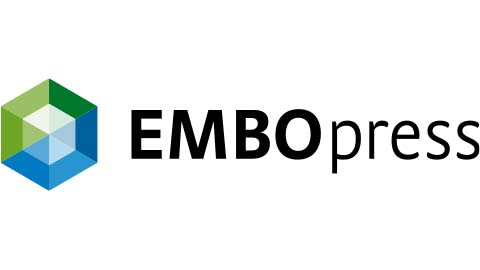
Sponsorship opportunities
We offer a variety of event sponsoring possibilities, with the flexibility to select a set sponsorship package or combine individual sponsorship options to suit your event budget. Discounts are available for companies sponsoring multiple events at EMBL Heidelberg. View other events, or contact sponsorship@embl.de for further information.
If you are interested in becoming a media partner of this event, please visit our media partnerships webpage.
EMBL wishes to warn sponsors of EMBL conferences and courses of fraudulent schemes purporting to offer sponsorship opportunities on behalf of EMBL or affiliated with EMBL officials. One current scam campaign of which we are aware is conducted using the name ‘Judy Eastman’ (judy@gopcontact.a2hosted.com) and entails approaches to sponsors offering sponsorship opportunities on EMBL’s behalf. Please be kindly advised that all relevant communication regarding sponsorship of EMBL conferences, symposia and courses is handled by EMBL directly and is sent from an official EMBL account. EMBL does not work with any external providers on sponsorship acquisition.
Please also note that:
Suspicious communications purportedly from, for or on behalf of EMBL should be reported to EMBL at the following email address sponsorship@embl.de.
Want to let others know you’re attending this event? Take a look at our shareable media and feel free to use them in your social media channels or presentations.

Date: 16 - 21 Jul 2023
Location: EMBL Heidelberg and Virtual
Venue: EMBL Advanced Training Centre
Deadline(s):
Application: Closed
Organisers:
Contact: Catherine Casas